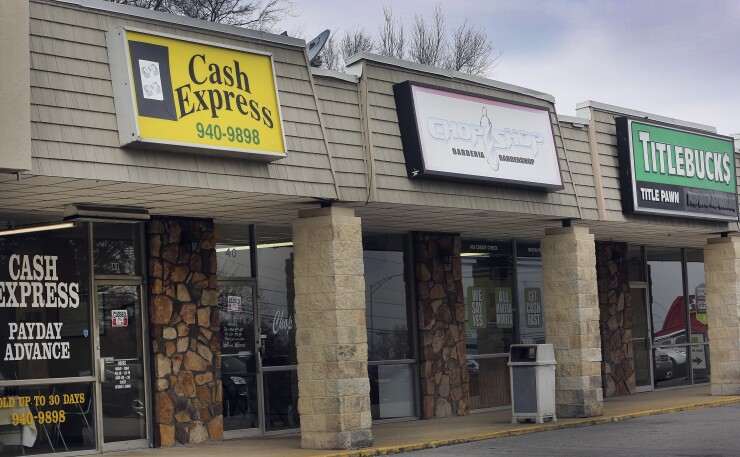Most of the country has never heard of Madden v. Midland Funding and the common law doctrine of “valid-when-made,” but the impact of the misguided decision by the 2nd U.S. Circuit Court of Appeals on consumers is far-reaching.
Officials from the Obama administration — including the former U.S. solicitor general and senior attorneys at the Office of the Comptroller of the Currency — stated that the case
Under current law, banks can export loans bearing home-state interest rates to borrowers in other states where the bank does business, or alternatively, the bank can choose to operate under the “host” state’s rate cap. After rate exportation was challenged, a

But what happens if those loans are slated to be sold, and the originating bank is only retaining a small portion of the risk? Following the Madden decision, it is unclear in the 2nd Circuit whether certain bank loans transferred to a marketplace lending platform would be ruled valid or not. Are loans bound by the bank’s “home” state rate cap, or the borrower’s “host” state rate cap? No one knows for sure. This legal uncertainty has caused nonbank investors in these loans to pull back, which, in turn, has led to a reduction in responsible and affordable online lending. Borrowers who are still trying to build credit have lost better options. According to an August
Thankfully, members of Congress are working on this issue. Reps. Patrick McHenry, R-N.C., and Gregory Meeks, D-N.Y., have authored a
To illustrate how the Madden decision is having an adverse impact, let’s look at a common real-world example: a New York resident with a 625 FICO score seeking to refinance credit card debt at a lower interest rate.
The credit card issuer is an out-of-state bank that charged the borrower 30% APR. Even though that rate is above the New York “host” state interest rate limit, the bank can legally apply its “home” state rate because it will keep the loan on its balance sheet.
The borrower seeks an online installment loan to pay off the credit card, and would quality for one at a rate of 26% APR. The installment loan too would be originated by a bank from out of state. Not only is the installment loan less expensive, but it is arguably more transparent too; the borrower’s payments are the same every month and are due the same day every month, and the borrower knows when the debt is fully paid down. The catch is that the cheaper installment loan lacks legal certainty under the Madden decision about applying a “home” state rate, simply because the loan is slated to be sold to a nonbank. As a result, the borrower gets stuck with the more expensive 30% credit card.
Another example is an online “point-of-sale” loan compared to the alternatives. If an expensive critical home appliance like an oven or a refrigerator suddenly fails, a low-credit-score borrower in New York might well need to resort to getting a loan from a pawnshop in the 48-60% APR range, or a
Regulatory endorsement of the online lending model was illustrated just recently when the CFPB granted its
Some have claimed that legislative fixes to address concerns about the Madden decision
The Protecting Consumers’ Access to Credit Act is gathering bipartisan momentum on Capitol Hill for good reason — the clock is ticking. As more physical bank branches close, there are billions or even trillions of dollars at nonbanks that could be unlocked to support lending to lower FICO borrowers that many traditional banks ignore. More investment liquidity means narrower risk premiums. That can drive better prices for these borrowers at origination. Do we really want such a deep pool of potential liquidity that can support responsible lending to remain on the sidelines due to legal and regulatory uncertainty?
At every point on the credit spectrum, simple, transparent products and lower interest rates save people money and can help set them on a better economic path. Congress and the states must make sure that the Madden decision does not inadvertently force borrowers into abusive loans when a more responsible, lower-cost product is potentially just a click away.





